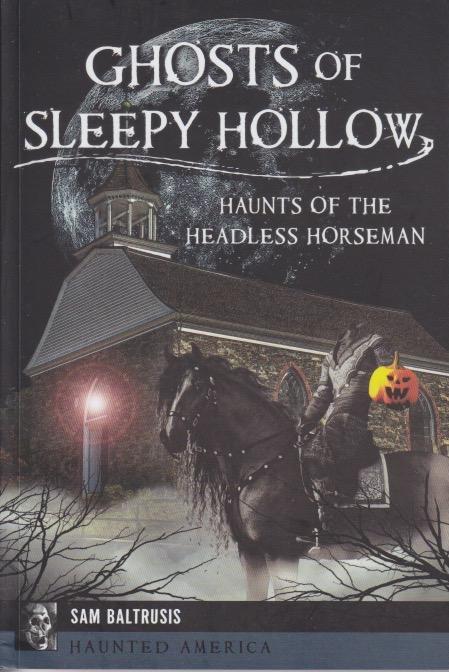
As it often goes, a friend pointed out to me a book on Sleepy Hollow that published just this week. I preordered a copy that arrived on Tuesday and buzzed through it. It’s what I describe to family as “one of those books”—you know, the local history, heavily illustrated quick reads from The History Press. (I would note that I submitted what was then The Myth of Sleepy Hollow to The History Press, but they never even responded to the submission.) In any case, Sam Baltrusis’ Ghosts of Sleepy Hollow: Haunts of the Headless Horseman is really quite different from what I do in my forthcoming Sleepy Hollow as American Myth. The History Press isn’t really regarded as such by historians. I like their books nonetheless. I was castigated by an academic journal editor early in my career for using one such book to illustrate local folklore. (That was, by far, the snootiest rejection letter I’ve ever received.)
Aloft noses aside, there is a legitimacy in listening to what the folk say. The tales in a book like this won’t convince skeptics, of course, but if you read them in the dark you’ll nevertheless find yourself glancing into the corner now and again, wondering if you saw something. The book does cover the “Legend of Sleepy Hollow” and Irving’s life in a few pages—Irving was a complex man and the first truly famous American writer—before moving on to local haunts. The thing that kept nagging at me was the easy shifting from fiction to fact. Folklore does have a way of becoming reality (and who can definitively even say what that is?) for people. No doubt, Sleepy Hollow has latched onto tourism in a big way. Even more so than on my last visit there. And folklore draws on that shifting borderland between fact and fict.
One of my motivations in writing Sleepy Hollow as American Myth was that the story is largely ignored by academics and “sophisticated” readers. It nevertheless remains important in popular culture. Academics tend to be slow in picking up what general readers find fascinating. I found a few academic articles on the subject, but my book was written for general readers as well. I hesitate to say too much, otherwise, why buy it? I have a handful of History Press (and similar) books on the region on my shelf. I learn from them. And I’m glad to see Sleepy Hollow getting more attention. My only real regret about my book is that I’ll have to wait a couple of years before the price comes down. In the meantime, those really curious about Sleepy Hollow will have this Haunted America version to read.
